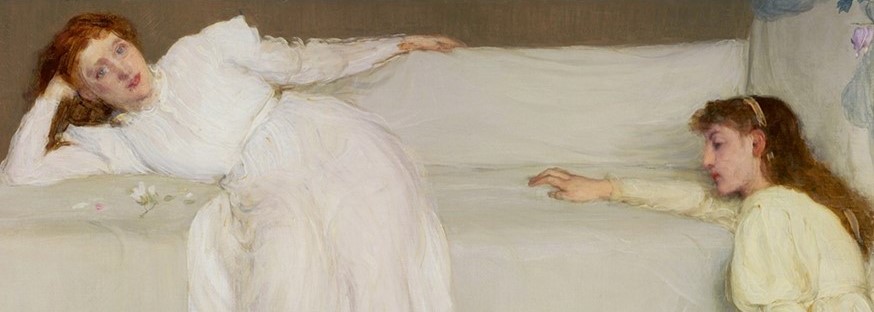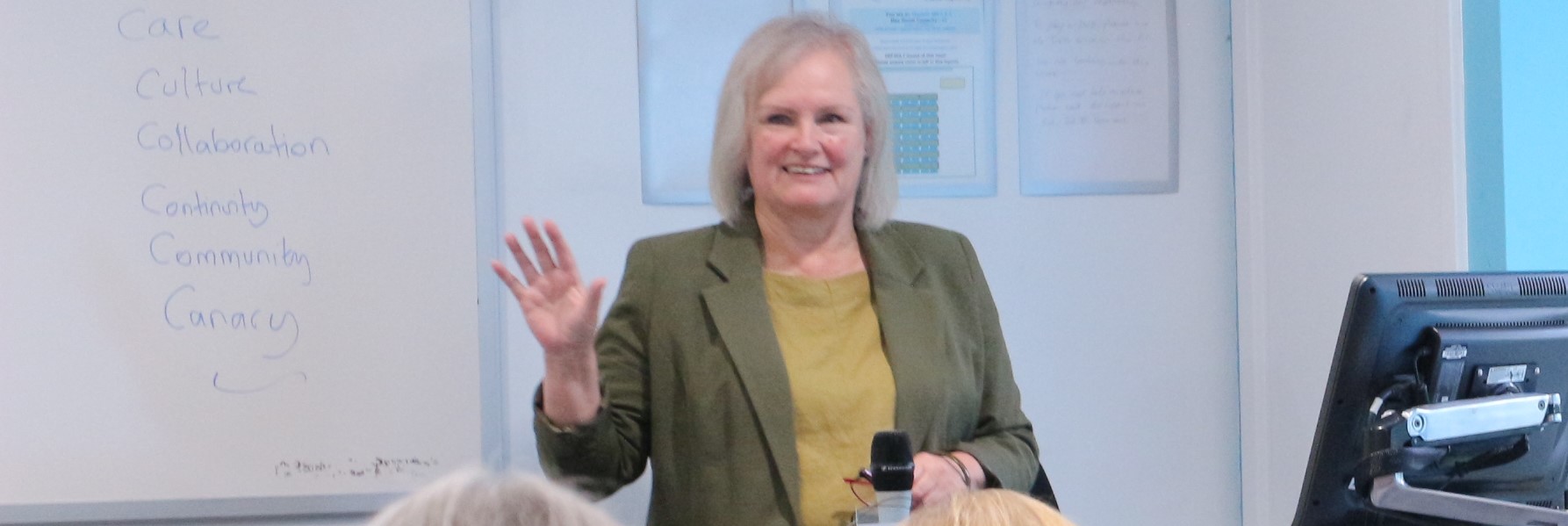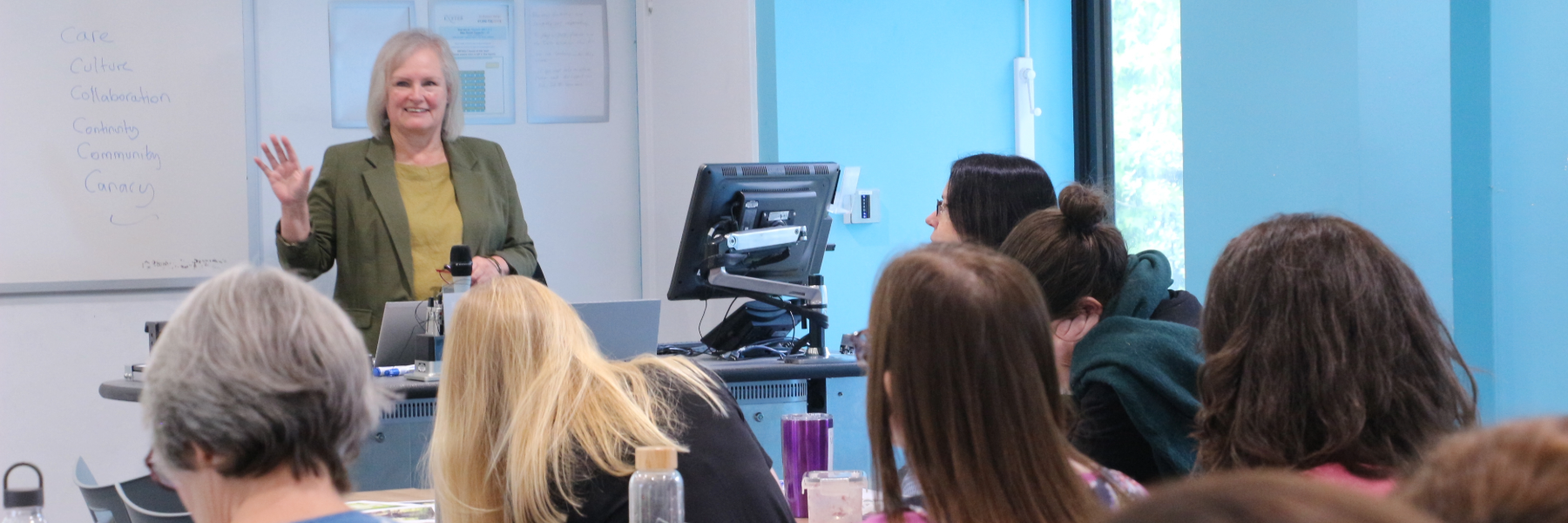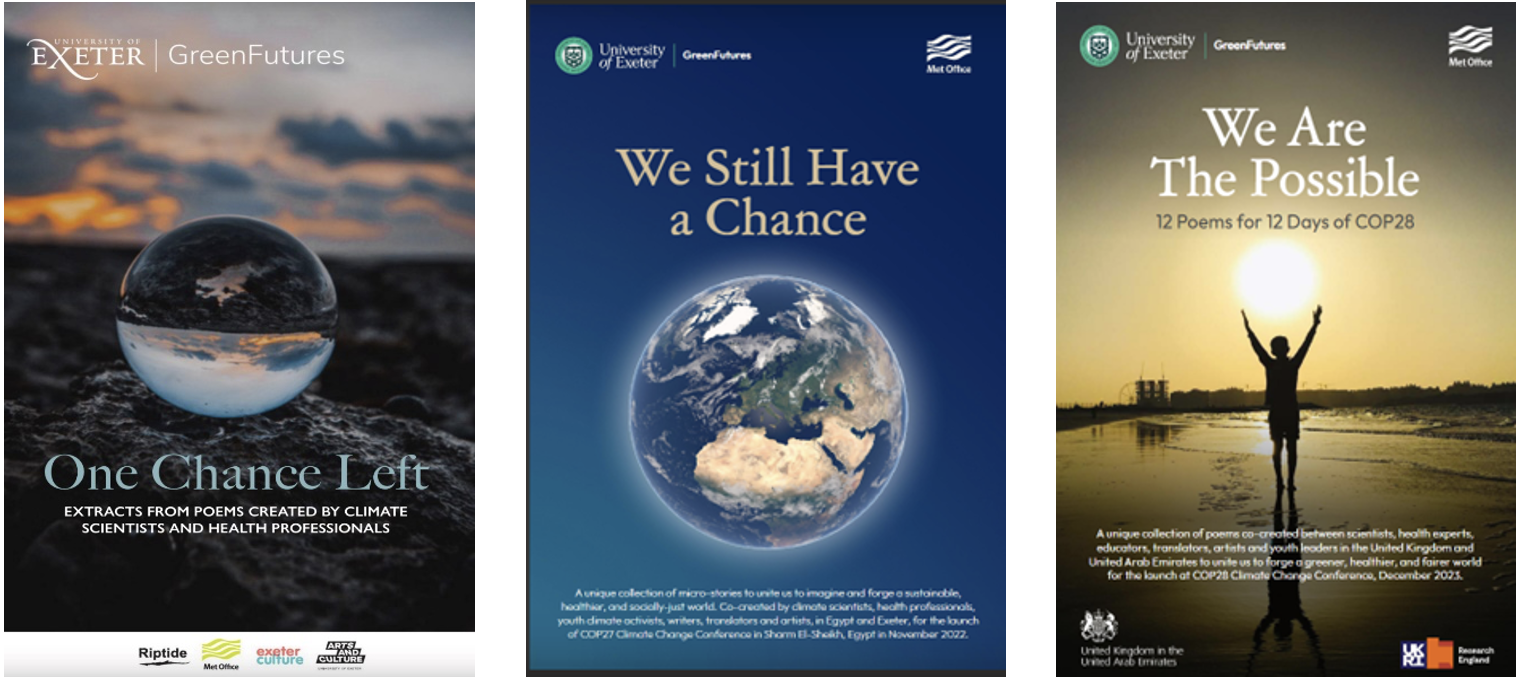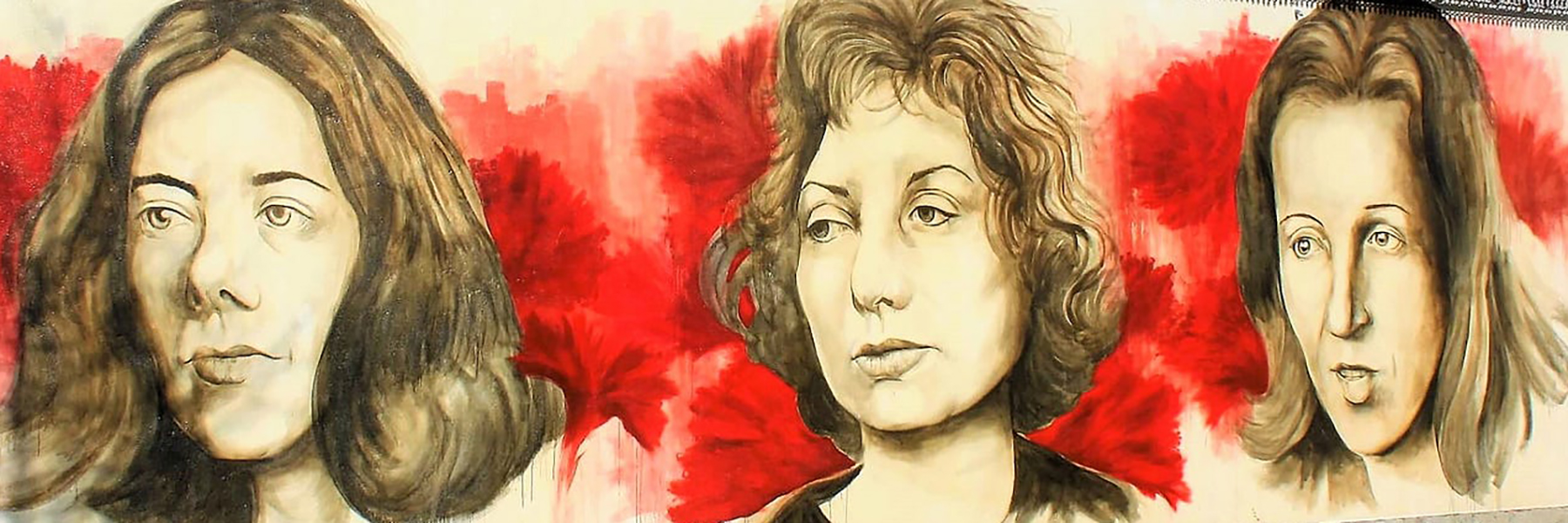The Reading Bodies project aims to challenge common assumptions about burnout by fostering communication and a sense of community through creativity. One of the main goals of the Reading Bodies: Burnout, Overload, and Resilience creative anthology – published in collaboration with Riptide Journal (2024) – was to help reduce social stigma through language and artistic expression.
To understand the impact of the anthology, we shared feedback forms with participants to learn if and how their attitudes and behaviours toward burnout had changed since taking part in the project.
By measuring the data from these feedback forms, we have identified key impacts such as building community and behavioural change. For example, 80% of respondents said that when reading the anthology, they felt a sense of shared experience and community. Additionally, a further 80% of respondents said that by contributing to the anthology, they have an increased willingness to share ideas and experiences about burnout, overload, and resilience.
‘[The anthology] creates a powerful sense of solidarity, care and community amongst people who will never meet but share solidarity through creativity.’
Anthology Contributor
‘[The book] being made and out in the world is a very empowering feeling.’
Anthology Contributor
You can read the digital version of the anthology as a flipbook and via our website here. You can also find the anthology on the Behavioural and Cultural Insights Hub, a knowledge-sharing platform for healthy practices developed in collaboration with the WHO Regional Office for Europe.
To read an interview with Katharine Murphy and Olivia Glaze discussing the public engagement initiatives from the Reading Bodies project, please click here.
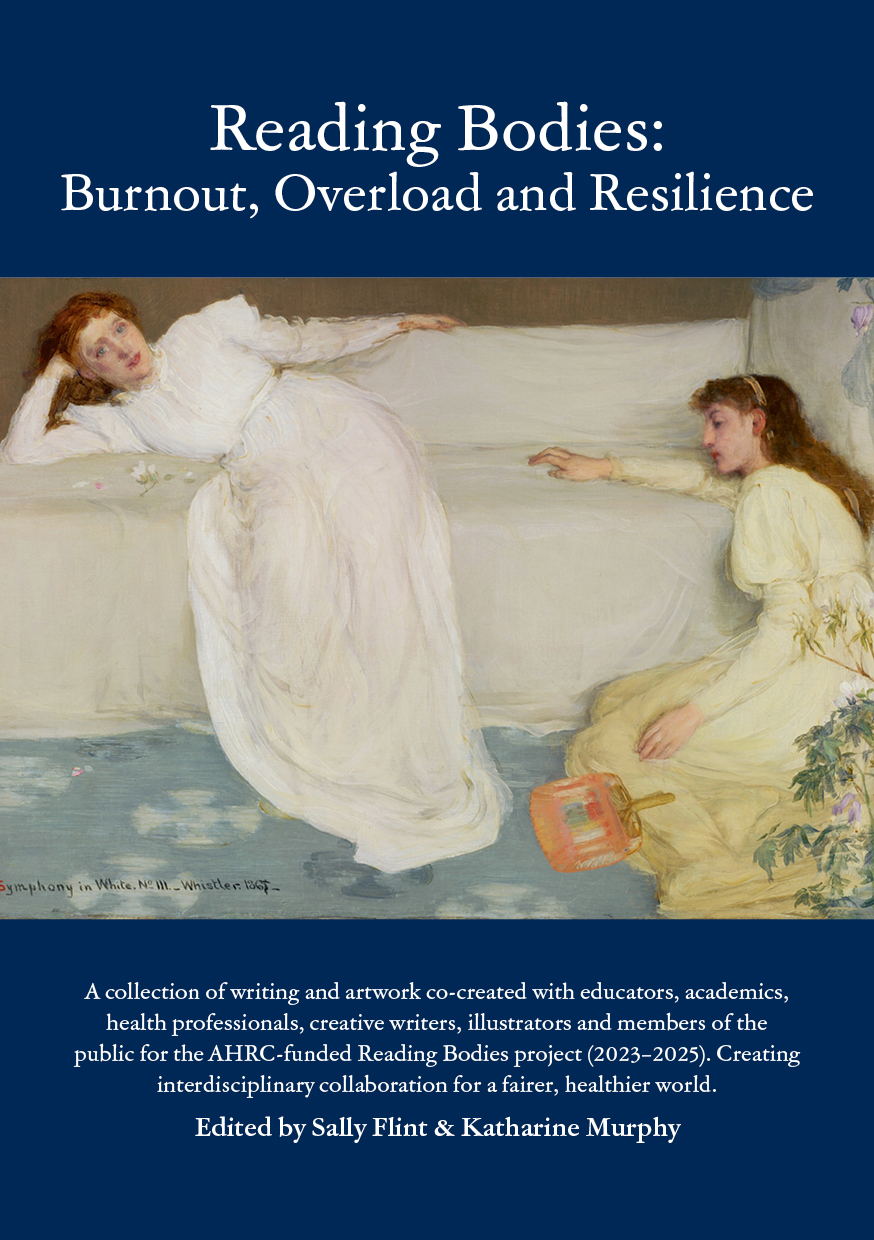
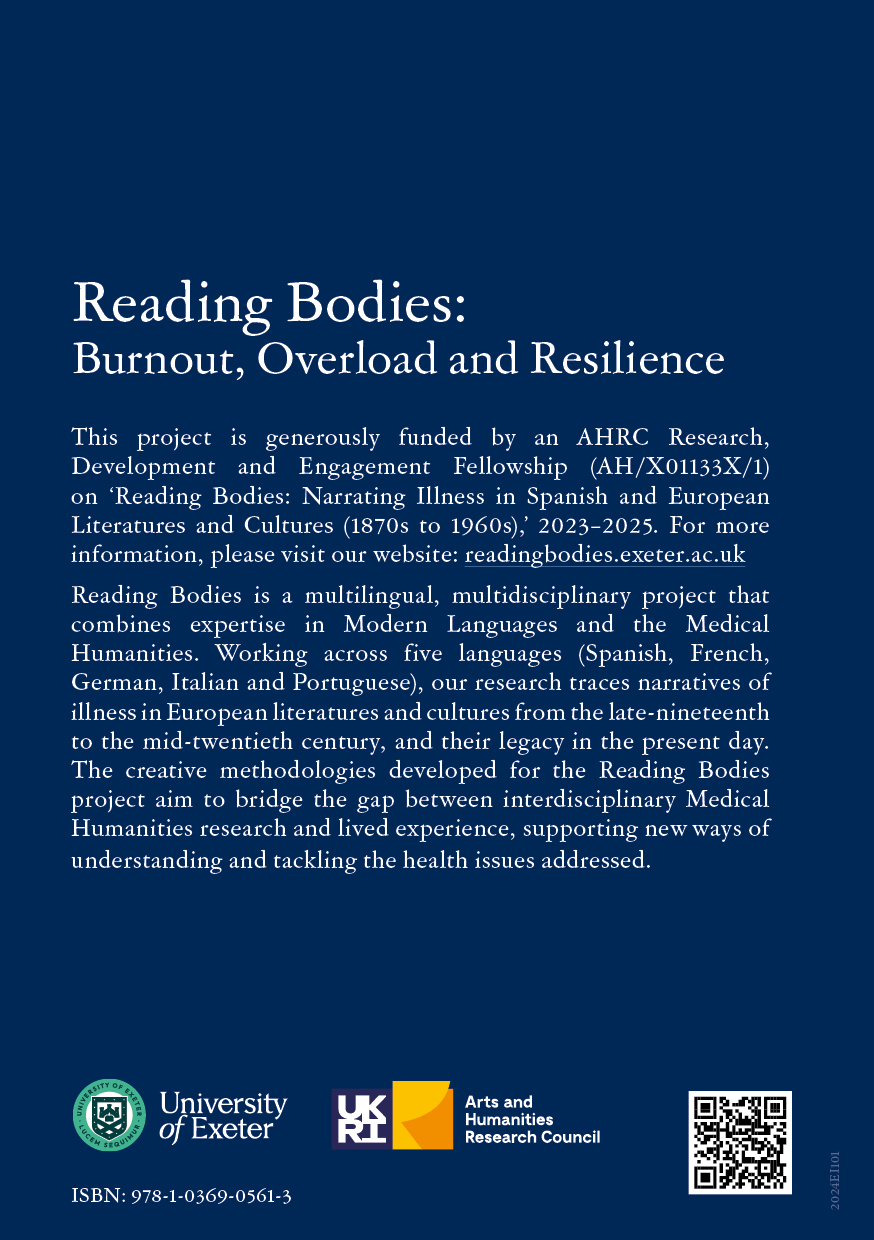
We plan to apply insights from the anthology on the language used to describe feelings of burnout to develop resources that help medical professionals better understand patient experiences.
We hope the project will inspire further conversations about the importance of health and mental health in our personal and professional lives.

